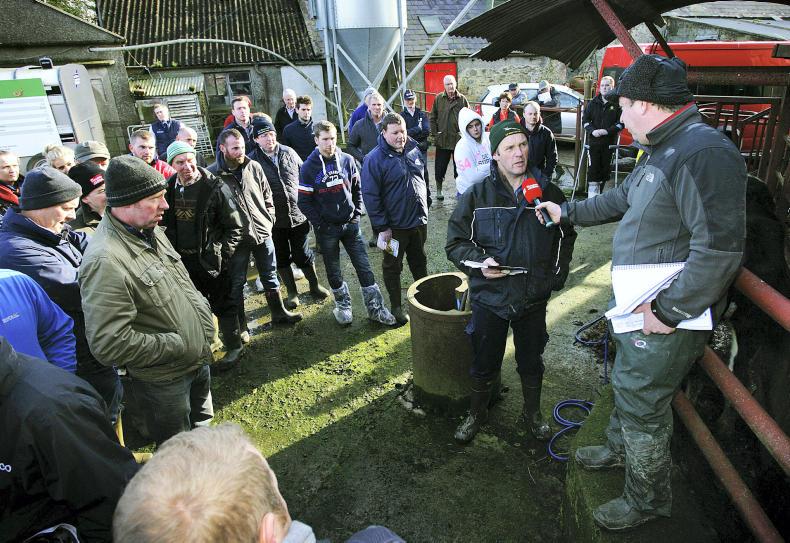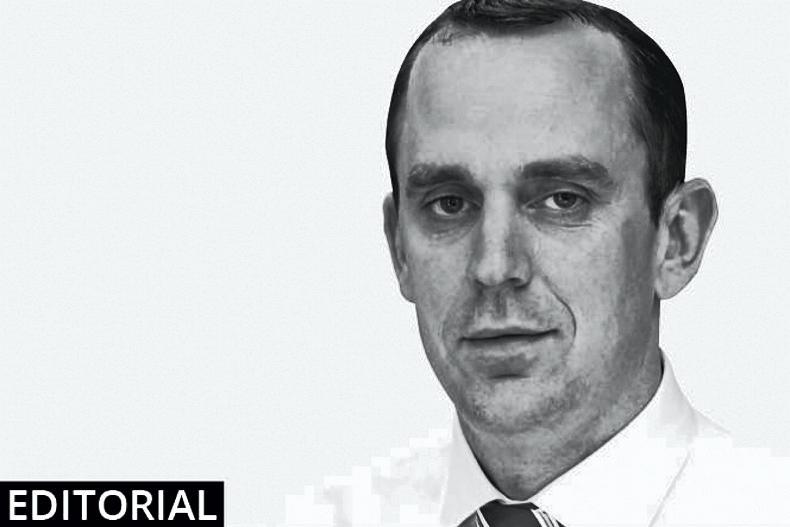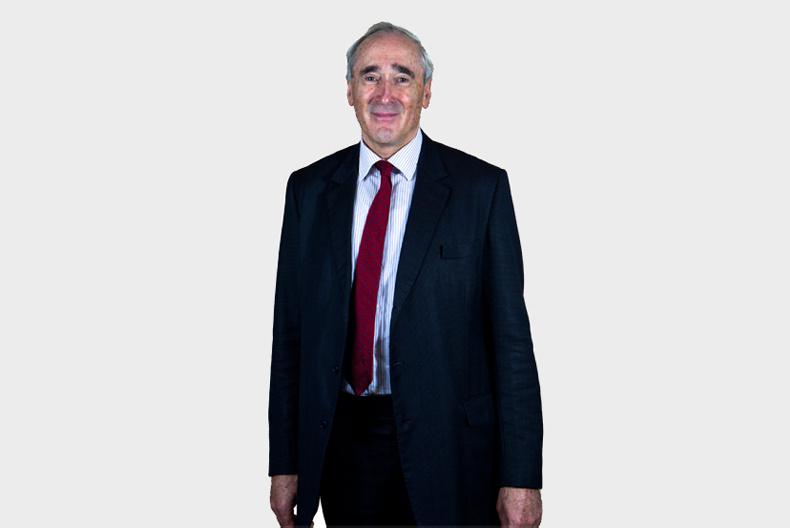Of the 75 members of the Citizens' Assembly present for its meeting on how the State can make Ireland a leader in tackling climate change, 65 voted in favour of the proposal, eight voted against it and two votes were invalid.
The resolution they adopted states that "there should be a tax on greenhouse gas emissions from agriculture. There should be rewards for the farmer for land management that sequesters carbon. Any resulting revenue should be re-invested to support climate-friendly agricultural practices".
The proposal was put forward by Alan Matthews, professor emeritus of European agricultural policy at Trinity College, who addressed the Citizens' Assembly alongside Teagasc emissions researcher Prof Gary Lanigan, farmers Andrew McHugh and Tony Garahy and FoodCloud founder Iseult Ward on Saturday.
Prof Matthews said the proposed levy would direct farmers away from beef production and into more climate-friendly businesses such as forestry. Some 80% of the Citizens' Assembly's members said they would be willing to pay higher taxes on carbon-intensive activities themselves if the funds went towards climate change measures.
The carbon tax was introduced in 2010, and since 2011 overall national greenhouse gas emissions have actually increased by 4%
IFA president Joe Healy said the proposal would make little environmental difference based on the experience of the existing carbon tax levied on fossil fuels. “The carbon tax was introduced in 2010, and since 2011 overall national greenhouse gas emissions have actually increased by 4%. There is no evidence that Alan Matthews’ suggestion to expand this tax further by imposing a second carbon tax on agriculture would have any positive environmental effect in practice,” Healy said. "Agriculture already has significant initiatives in place and agricultural emissions have fallen by 6% since 1990 while our output has increased by over 40%. However, transport’s greenhouse gas emissions are now out of control, having increased by 130% over the same period.”
While Prof Matthews highlighted poor farmers' incomes in the suckler and beef sectors as a reason to move away from this industry, Healy countered that "we need to improve returns for suckler farmers, not obliterate them" as it is a welfare-friendly system that "contributes to maintain Ireland's green image".
Allow farmers to produce renewable energy
The Citizens' Assembly also returned a 99% vote in favour of legislation allowing farmers and homeowners to sell renewable electricity back to the national grid, for example energy from solar panels or wind turbines on private buildings and land. Co Longford dairy farmer Andrew McHugh told the Assembly on Saturday that producing solar energy from his sheds' roofs would be his next step in combating greenhouse gas emissions, but current Government policy did not allow this.
The Citizens' Assembly unanimously called on the State to ensure the greatest possible levels of community ownership in all future renewable energy projects by encouraging communities to develop their own projects and by requiring that developer-led projects make share offers to communities to encourage greater local involvement and ownership. This suggestion has been a long-standing demand of the IFA.
Read more
Farmers reject Citizens' Assembly proposal to move away from beef production
Full coverage: agriculture and climate change
Of the 75 members of the Citizens' Assembly present for its meeting on how the State can make Ireland a leader in tackling climate change, 65 voted in favour of the proposal, eight voted against it and two votes were invalid.
The resolution they adopted states that "there should be a tax on greenhouse gas emissions from agriculture. There should be rewards for the farmer for land management that sequesters carbon. Any resulting revenue should be re-invested to support climate-friendly agricultural practices".
The proposal was put forward by Alan Matthews, professor emeritus of European agricultural policy at Trinity College, who addressed the Citizens' Assembly alongside Teagasc emissions researcher Prof Gary Lanigan, farmers Andrew McHugh and Tony Garahy and FoodCloud founder Iseult Ward on Saturday.
Prof Matthews said the proposed levy would direct farmers away from beef production and into more climate-friendly businesses such as forestry. Some 80% of the Citizens' Assembly's members said they would be willing to pay higher taxes on carbon-intensive activities themselves if the funds went towards climate change measures.
The carbon tax was introduced in 2010, and since 2011 overall national greenhouse gas emissions have actually increased by 4%
IFA president Joe Healy said the proposal would make little environmental difference based on the experience of the existing carbon tax levied on fossil fuels. “The carbon tax was introduced in 2010, and since 2011 overall national greenhouse gas emissions have actually increased by 4%. There is no evidence that Alan Matthews’ suggestion to expand this tax further by imposing a second carbon tax on agriculture would have any positive environmental effect in practice,” Healy said. "Agriculture already has significant initiatives in place and agricultural emissions have fallen by 6% since 1990 while our output has increased by over 40%. However, transport’s greenhouse gas emissions are now out of control, having increased by 130% over the same period.”
While Prof Matthews highlighted poor farmers' incomes in the suckler and beef sectors as a reason to move away from this industry, Healy countered that "we need to improve returns for suckler farmers, not obliterate them" as it is a welfare-friendly system that "contributes to maintain Ireland's green image".
Allow farmers to produce renewable energy
The Citizens' Assembly also returned a 99% vote in favour of legislation allowing farmers and homeowners to sell renewable electricity back to the national grid, for example energy from solar panels or wind turbines on private buildings and land. Co Longford dairy farmer Andrew McHugh told the Assembly on Saturday that producing solar energy from his sheds' roofs would be his next step in combating greenhouse gas emissions, but current Government policy did not allow this.
The Citizens' Assembly unanimously called on the State to ensure the greatest possible levels of community ownership in all future renewable energy projects by encouraging communities to develop their own projects and by requiring that developer-led projects make share offers to communities to encourage greater local involvement and ownership. This suggestion has been a long-standing demand of the IFA.
Read more
Farmers reject Citizens' Assembly proposal to move away from beef production
Full coverage: agriculture and climate change








SHARING OPTIONS